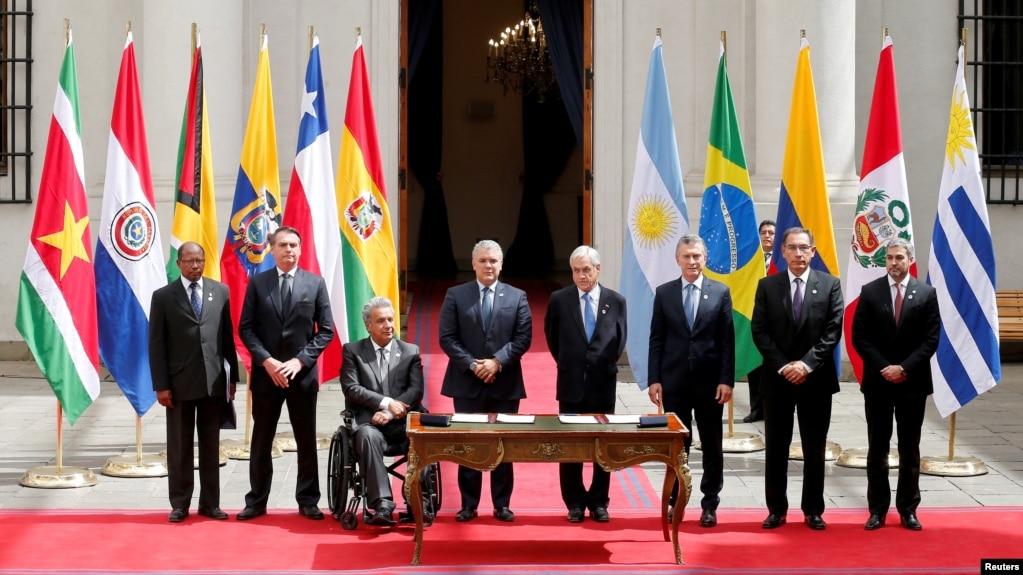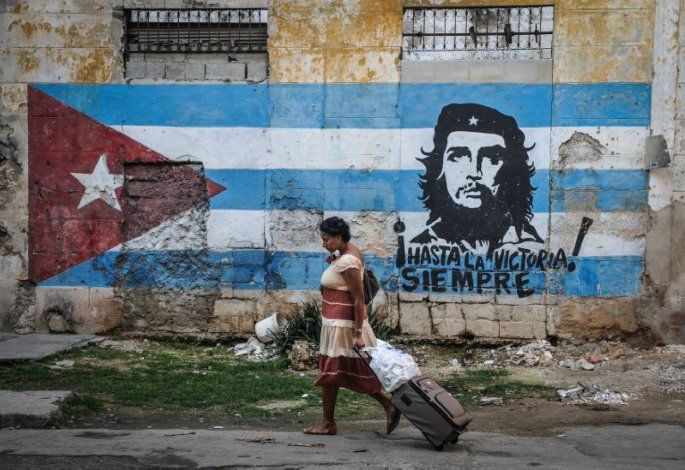 |
| The President of Argentina, Alberto Fernández, and Vice President Cristina Fernández de Kirchner at a press conference after Sunday's primaries (Photo: AFP) |
Kirchnerism suffers an electoral catastrophe in the primary elections in Argentina
The candidates of the Government to Congress lose in all the most important districts, including the province of Buenos Aires, stronghold of Vice President Cristina Fernández de Kirchner
Kirchnerism has a lot to worry about. Its candidates to fight for a seat in Congress on November 14th have lost in primary elections in 18 of the 24 districts of the country, according to official results, including the province of Buenos Aires, a historic stronghold of Peronism and responsible for 40% of the votes to nationals.
The opposition, gathered in "Juntos por el Cambio", the coalition that brought Mauricio Macri to power in 2015, retains its traditional districts (the city of Buenos Aires, Mendoza and Córdoba), and wins in provinces that tend to be wayward to the right, such as Chaco, La Pampa, Tierra del Fuego, Misiones and even Santa Cruz, the political cradle of Kirchnerism.
In the primaries, only candidates are chosen, in this case deputies and senators, but as all Argentines are obliged to vote in them, the result is usually an advance of the final elections. That is why the coup has been extremely harsh, and its consequences still unpredictable, for the Government of Alberto Fernández.
The opposition victory places the mayor of the Argentine capital, Horacio Rodríguez Larreta, in the race for the presidency in 2023.
 |
| Horacio Rodriguez Larreta |
President Fernández admitted the opposition triumph along with the main candidates and Vice President Cristina Fernández de Kirchner. “We have not done something right so that people do not join us and all of us who are here listen to the verdict. There is a demand that we have not satisfied and that from tomorrow we will pay attention to it, ”he said.
Argentines participated this Sunday in an original electoral experiment, with the election of candidates in primary, open, mandatory and simultaneous elections. The PASO, as they are called, thus become a referendum of the official management. The Government was aware of the difficulties it was facing: the economy in tailspin, the product of three years of recession and the paralysis of the pandemic, and unforced errors by Alberto Fernández and his environment and the increasingly evident fights within the coalition, with Cristina Fernández de Kirchner as the protagonist.
She expected, however, a narrow victory in the province of Buenos Aires and first place in the total sum of national votes. None of that has happened. Even with Peronism united. The map of the Argentine provinces has been tinted yellow, the color of Together for Change, and Peronism loses control of the interior of the country, the source of its power.
The results give a dimension of the catastrophe. In the province of Buenos Aires, with 97% of the polls scrutinized, the opposition coalition gets 38%, against 33.6% of the ruling "Frente de Todos". In Capital, the Macrismo got 48.3% of the votes, against 24.6% of Peronism. In the interior of the country, the Government has not fared better, even in traditionally Peronist districts such as La Pampa (48.8% against 38.3%) or Chaco (44.2% against 35.5%). The government candidates have only added more votes than their rivals in Tucumán, Catamarca, La Rioja, Formosa, San Juan and Santiago del Estero.
The result elevates as leader of the opposition the Mayor of Buenos Aires, Horacio Rodríguez Larreta, who armed the election with his own candidates, to the detriment of the most radicalized sectors of the coalition, represented by Mauricio Macri.
The loss of the province of Buenos Aires and other traditionally Peronists was not even in the most pessimistic projections.
"The defeat is partly explained by economic reasons," says Eduardo Fidanza, director of the Poliarquía consulting firm. “The value of wages has deteriorated, inflation levels are intolerable and the Government has not been able to compensate with the management of the pandemic.
 |
| Javier Milei |
From Together for Change, everything has been celebrations. The primaries also revealed the emergence of a right-wing force hitherto unknown in Argentina. The economist Javier Milei, defender of Jair Bolsonaro and Donald Trump, was the third force in the capital, with 13.6% of the votes.
Source: El Pais, Clarin & Infobae.











